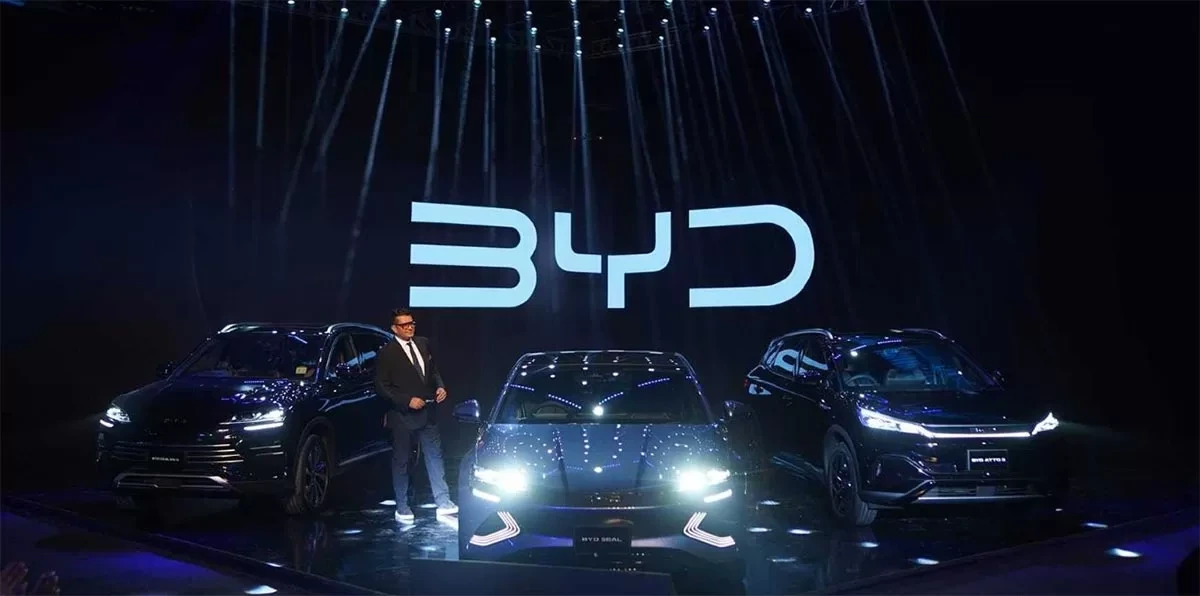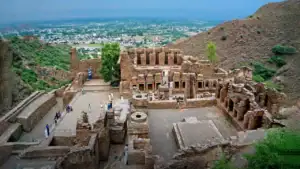Islamabad 24 July: BYD to assemble EVs and reshape Pakistan’s automotive landscape – Chinese electric vehicle giant BYD is establishing its first local assembly plant near Karachi, targeting both electric and plug-in hybrid vehicles.
The facility, being developed in partnership with Mega Motor Company, a subsidiary of Hub Power Company, is expected to begin production by mid-2026 with an annual capacity of 25,000 units operating on a double-shift basis.
The move directly challenges the dominance of Japanese automakers, who currently control nearly 97% of Pakistan’s auto market, led by Suzuki (42%), Toyota (34%), and Honda (17%). With EV demand rising and government policy shifting toward green technology, BYD sees a timely opportunity.
Pakistan’s EV market is small but growing fast, and we want to lead the charge, says Danish Khaliq, Vice President of Sales and Strategy at BYD Pakistan.
Riding the EV Wave
Pakistan’s electric and plug-in hybrid market stood at just 1,000 units in 2024, but BYD estimates that demand will triple or quadruple in 2025. The company aims to secure a 30–35% market share in this emerging segment, buoyed by a strong debut: BYD’s imported EVs have exceeded sales targets by 30% since March 2025.
BYD is also launching its Shark 6 plug-in hybrid pickup truck this week in Pakistan, entering a segment with growing consumer interest. It will compete with models like MG’s hybrid SUV and the upcoming Haval plug-in range.
READ MORE: BYD Electrifies PSL X
The plant will assemble imported EV components alongside locally sourced non-electric parts, initially focusing on the domestic market. However, BYD is eyeing future exports to right-hand drive countries such as Bangladesh, Sri Lanka, and select African nations, depending on freight and market dynamics.
Plug-In Advantage & Infrastructure Push
With Pakistan’s EV charging infrastructure still limited, plug-in hybrids are seen as a practical bridge. In January 2025, the government slashed power tariffs for EV chargers by 45% to promote private investment in charging stations.
BYD and Hub Power are responding by planning 20–30 fast-charging stations, working in collaboration with two major oil marketing companies. These stations will be strategically placed in urban centers, highways, and motorways.
Government Support and Export Vision
The project has strong government backing. Finance Minister Muhammad Aurangzeb has emphasized transforming Pakistan into a regional export hub for new energy vehicles, leveraging partnerships like BYD’s.
“This is a landmark investment,” said Kamran Kamal, CEO of Hub Power. “This will be Pakistan’s first dedicated new energy vehicle (NEV) facility.”
The government’s EV policy includes 1% sales tax on locally assembled EVs, customs duty exemptions, and incentives for local manufacturing — all designed to stimulate production and encourage affordability.
With the local auto industry rebounding — vehicle sales surged 51.3% in H1 FY2025 — and rising fuel prices and environmental concerns pushing buyers toward greener options, BYD’s timing could prove pivotal.
If successful, BYD’s expansion may not only offer Pakistani consumers cleaner transport options but also disrupt a market long dominated by Japanese brands, pushing the industry toward a more sustainable and diversified future.









